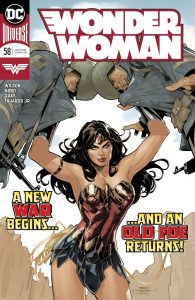
Wilson and Nord’s first arc on the book is The Just War, a story in which Ares, who is traditionally at odds with Diana Prince over him being the god of war and her a paragon of heroic virtue, is freed from imprisonment under Themyscira. Like so many of us these days, Ares is motivated to be a better person, and off the story goes. Recently, ComicsBeat had a chance to talk with Wilson about her favorite Wonder Woman runs, the difference between writing a long-standing character versus a new creation like Ms. Marvel, and the likelihood that the god of war will actually grow and change. Here’s what she had to say…
ComicsBeat: In superhero comics, you’re probably most closely associated with Ms. Marvel—a character you started writing from scratch who has since become a star—and now you’re working on Wonder Woman—a character with many decades of history—does that change your approach to the work?
Wilson: It really does. It’s a very different set of challenges to write a new, totally unknown character versus a widely-known, widely-beloved character with 75-plus years of history. Writing Ms. Marvel, everything I did was from scratch, nothing was established. Myself and Sana Amanat and the creative team made everything—from her power set to her family background to her friends and her school to her costume—absolutely from scratch. The real challenge of that is you have to get absolutely everything right. If you mess up, that character gets shelved forever.
With Wonder Woman, it’s a very different set of issues. You’re stepping into a series that’s been going on for decades with a character who’s been written and drawn by the best names in the industry, and who is really—in every sense of the word—iconic. The pressures are quite different. The pressures now are, can I make that history seem fresh? Do I have something to say about this character that hasn’t been said yet, and at the same time can I respect that character’s history and the emotional involvement her fans have with her?
Yet, on the other hand it’s a bit of a relief, because I could write the worst Wonder Woman story ever published and nothing bad would happen to Wonder Woman. She would still be around. They would reboot the series. Wonder Woman would be fine, whereas with Ms. Marvel that was very much not the case.
ComicsBeat: Let’s talk about your first story arc on Wonder Woman, The Just War. I really liked the first issue and all that it setup…what sort of challenges will Diana face from here and what if anything can you tell us about the role Ares will play in her journey?
Wilson: Ares, as it kind of hints at in that first issue, has come to a kind of crisis in his life. He has in this timeline been imprisoned under Themyscira for so long that he has really had time to contemplate why he’s there, and he’s attempting to turnover a new leaf. Really, though, the question in this opening arc is can the god of war change? It’s going to be very unsettling for Diana to be confronted with this person who she thinks is her mortal enemy, and who now wants to be her best friend, who says he wants to do the same thing she does and that he believes the same things she believes.
We’re really asking a lot of hard questions, of Ares as a character but also of Diana as a character. She’s presented with this caricature of herself in this newly-improved and suddenly-interested version of Ares. Things could go very well or very badly, and given that this is superhero comics, you can probably guess which way it goes. Along the way, we’re going to pull in some beloved minor characters we haven’t seen in a while, some new characters that hopefully will really grab interest both with new readers and with established readers, and we’re also going to have a lot of fun and face a lot of drama.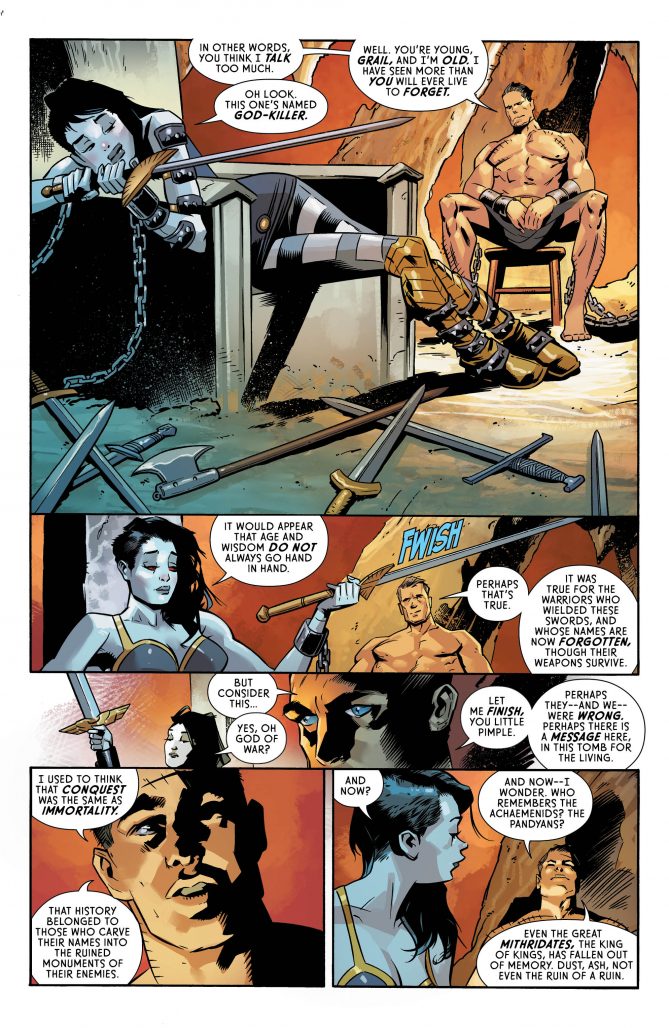
Wilson: It’s something I think about a lot. I like that juxtaposition of the very old, the very iconic, and the very mythological with the new and the pop cultural and the mainstream real world. If you’ve read Ms. Marvel, you know there’s nothing I like more than asking the question: what would happen if superheroes just sort of showed up on a block of ordinary people and chaos ensued? I really like intertwining the stories of ordinary people—for whom the superhero world is this completely fantastical other mode of being—with superheroes, ordinary people for whom usually the most exciting thing they do in a day is get the special at Chipotle for lunch. There’s a lot of innate humor and pathos and drama and all of the stuff that makes a great story in that juxtaposition. I’m very happy to be stepping into a series where the character has their feet in Greek mythology, in these very old stories, but also lives in a bustling real world of modern day metropolises.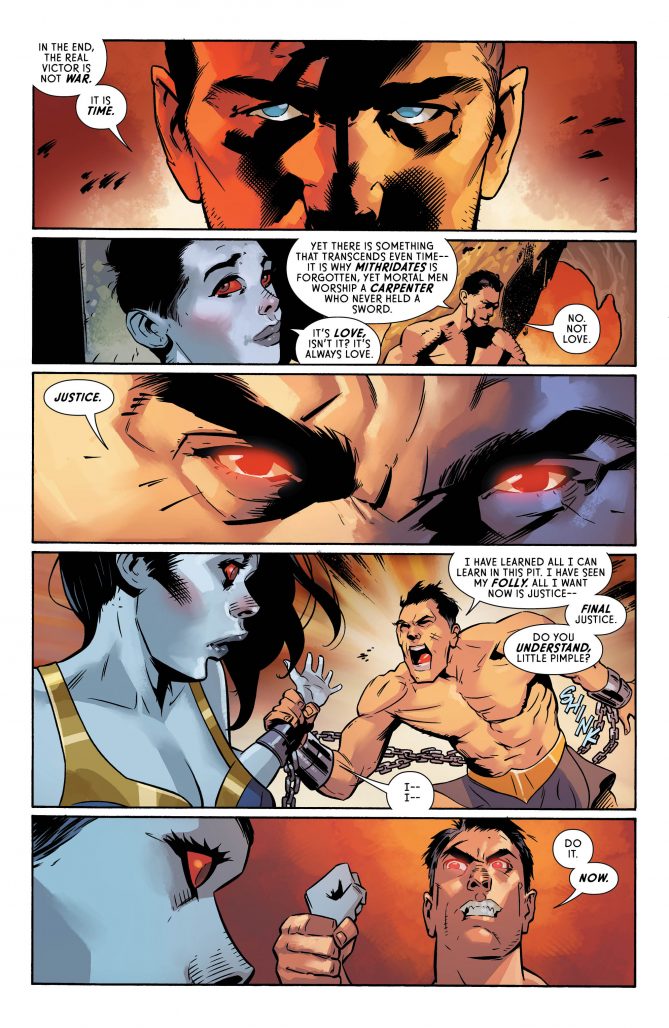
Wilson: There were a few different runs, but even before I started doing research for my own Wonder Woman run, I was a big fan of Greg Rucka’s run. If you want to talk about juxtaposition between old and new, I thought the way he intertwined the mythology of the Olympians and Themyscira with a modern day political drama was great. For sheer pathos and emotional weight—and just contemplative gawkiness—I loved Brian Azzarello’s reboot. Particularly I thought his take on Ares was really creepy and wonderful and instructive, adding several layers to the character that we didn’t see before. I liked Gail Simone’s run, too. With Gail, you get the big set pieces and the drama and the hilarity.
Really, what the takeaway was from reading all these very tonally-different, structurally-different stories was that with a character like Wonder Woman you can interpret her life, her backstory, her power set in so many different ways, and arrive at stories that look and feel quite different. The challenge for me is really paying homage to that history while at the same time coming up with something fresh and something new.


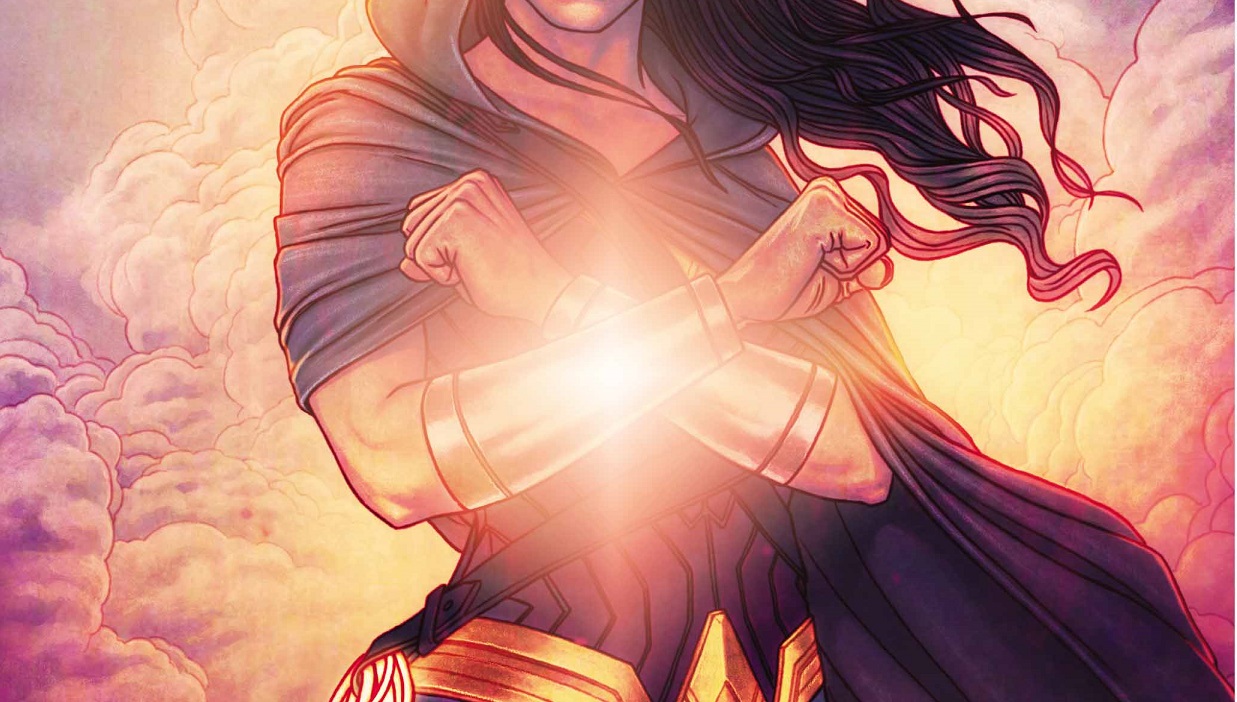
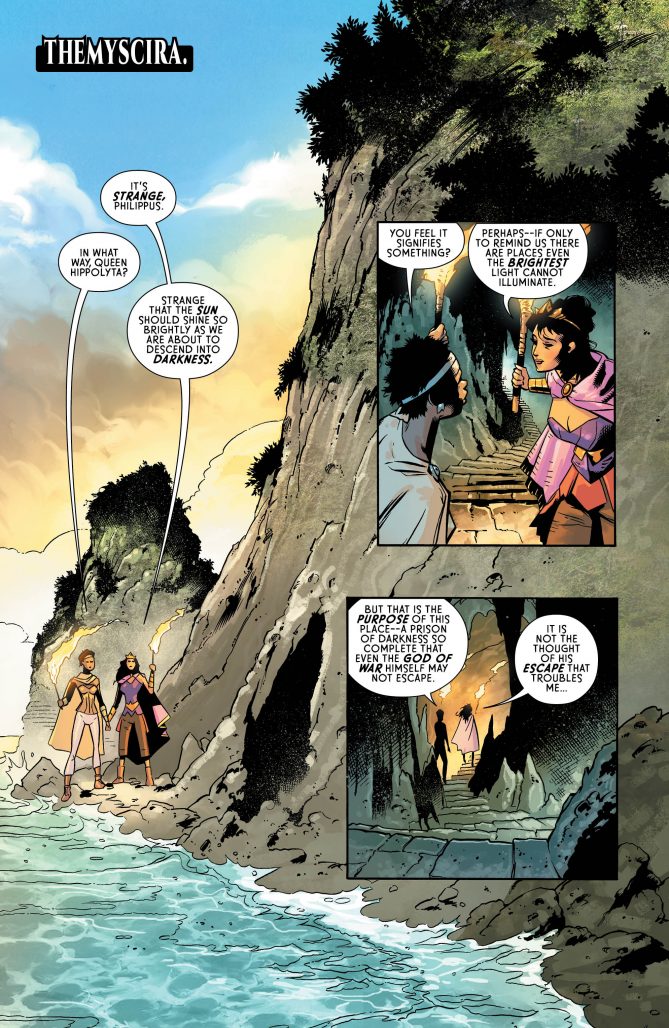
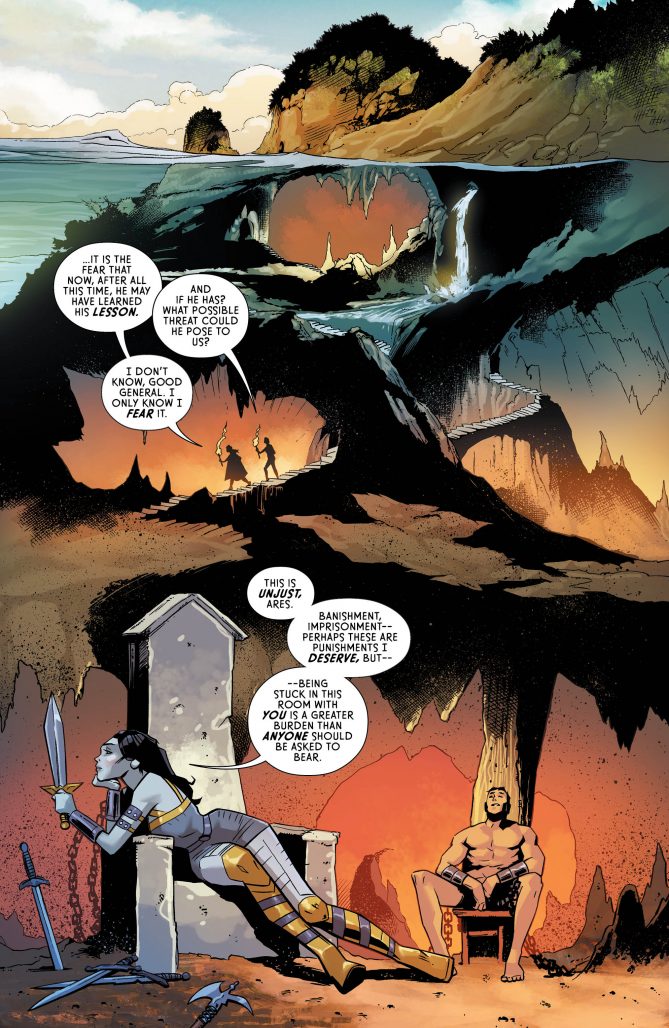
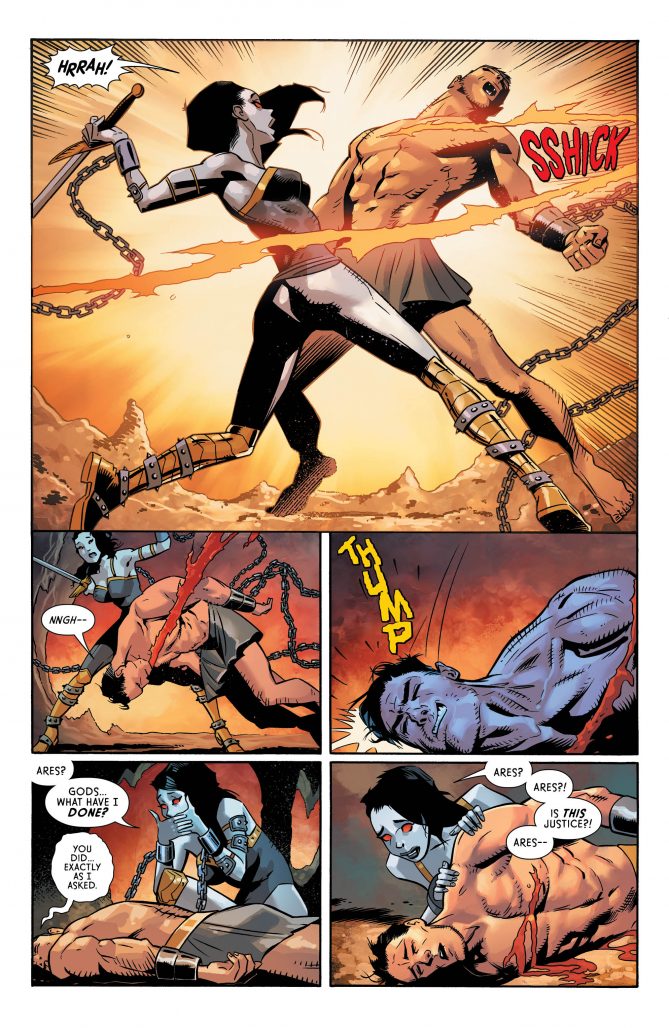
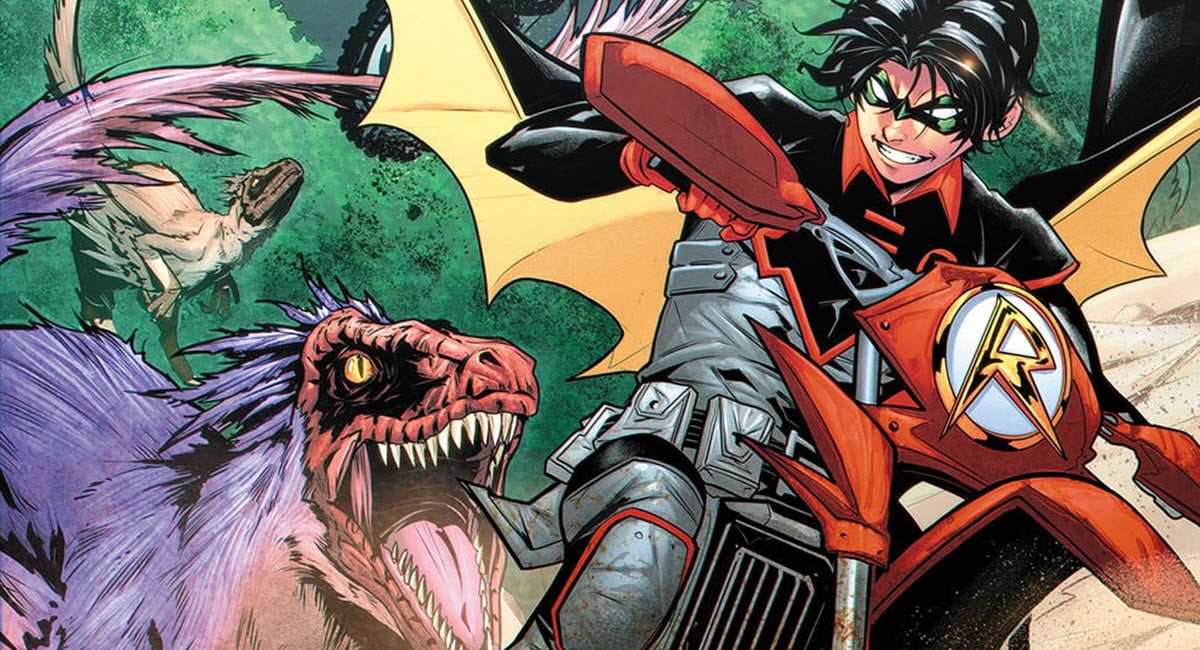
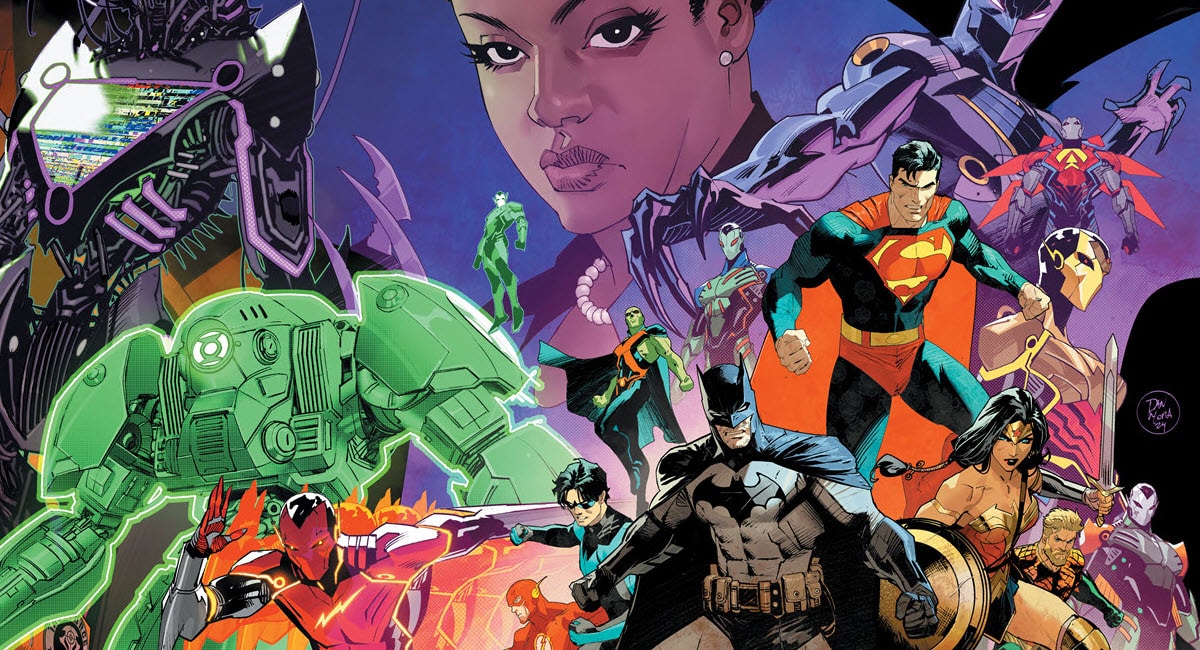
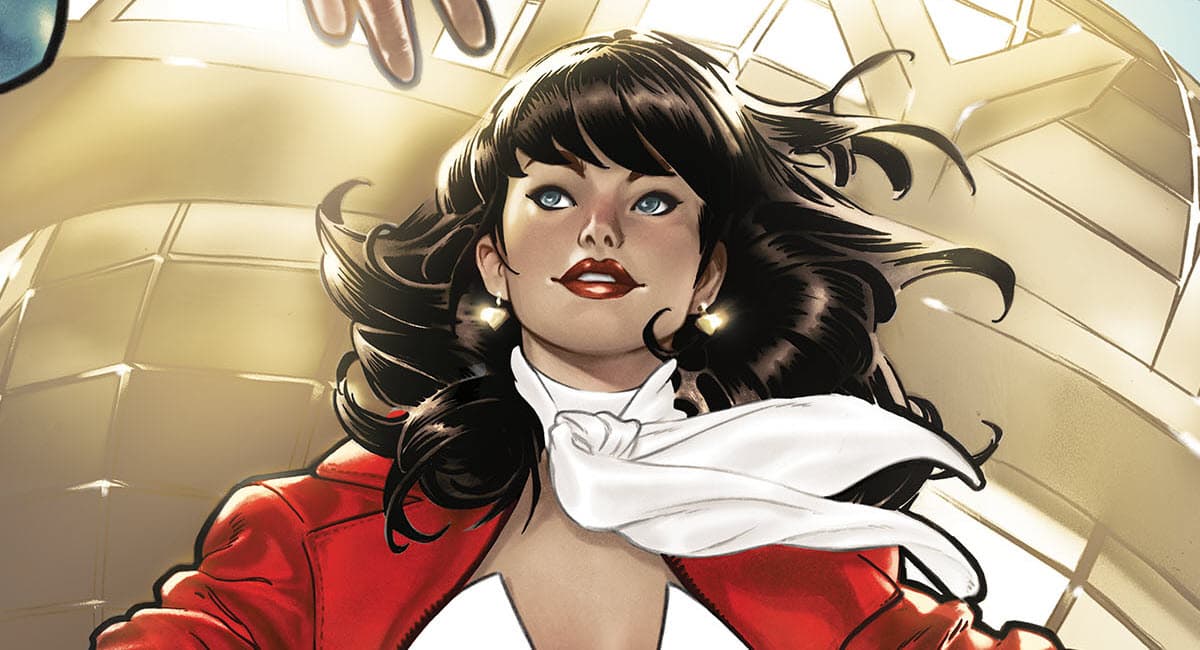




I like the colouring in this too. Nord’s art is there and is perhaps more cartoony than I expected. Still, very pleasant overall
Comments are closed.